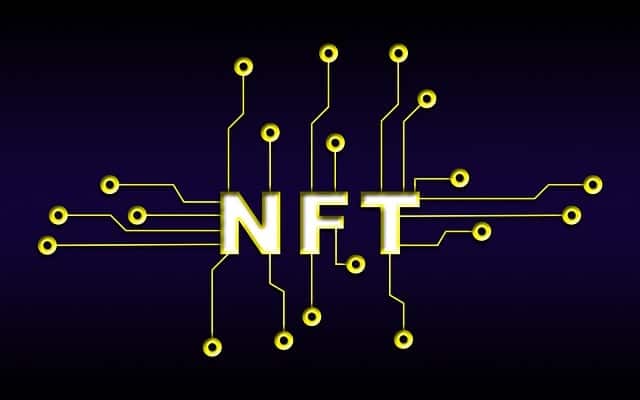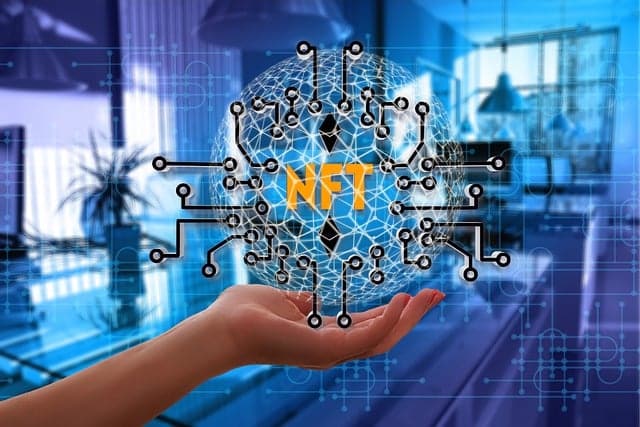In the realm of gaming, a technological breakthrough has been shaking up the traditional ways players interact with in-game assets, virtual economies, and their overall gaming experiences. Non-Fungible Tokens (NFTs) have emerged as a revolutionary force, offering unprecedented opportunities for gamers, developers, and collectors alike.
This article delves into the disruptive impact of NFTs on the gaming industry, unraveling how these digital assets are reshaping in-game ecosystems, redefining virtual economies, and enhancing player experiences in ways never seen before.
Understanding NFTs and Their Role in Gaming
At the core of the NFT revolution lies the concept of digital ownership and scarcity.

Unlike cryptocurrencies such as Bitcoin or Ethereum, which are fungible and interchangeable, NFTs represent unique, indivisible digital assets that are stored on a blockchain. NFTs or Non-Fungible Tokens are unique cryptographic assets that exist on a blockchain and cannot be replicated. Each NFT is distinguishable from every other token, making it ideal for representing one-of-a-kind items such as in-game assets, skins, collectibles, and more.
In the gaming world, NFTs have unlocked a new frontier where players can truly own their digital possessions. Traditionally, in-game items were stored on centralized servers owned by game developers, leaving players with limited control over their purchases. However, with NFTs, players now have the power to buy, sell, and trade virtual assets directly on blockchain-powered marketplaces, giving rise to a decentralized economy within games.
Transforming Virtual Economies
The introduction of NFTs has had a profound impact on virtual economies within games.
By enabling the creation of unique and tradable assets, NFTs are reshaping the way players engage with in-game markets. In traditional games, virtual items were often subject to the control of developers, leading to issues such as inflation, scarcity, and lack of ownership.
However, with NFTs, players can trade assets peer-to-peer, establish their own prices, and participate in decentralized exchanges without middlemen. This shift towards player-driven economies has fostered a sense of empowerment and autonomy among gamers, as they now have the freedom to dictate the value of their digital possessions.
Furthermore, NFTs have made their mark in online casinos. Certain online casinos, particularly those offering online casino games in Australia, the UK, and the US, are now incorporating NFTs as a means to foster loyalty among their regular players. As such, these tokens have now become more than just a digital asset and have become a personalized key to exclusive perks and rewards within the casino realm.
As such, the appeal of NFTs on online casino sites has attracted many online gamers to explore various gaming review sites in search of platforms that offer NFTs, generous welcome bonuses, and a wide selection of their favorite casino games.
Revolutionizing In-Game Assets
NFTs have transformed the way in-game assets are perceived and acquired.
With the ability to mint digital assets as NFTs, game developers can create unique and scarce items that players can truly own. This has paved the way for a new era of digital ownership, where players can invest in rare items that hold real-world value.
For instance, in games like Axie Infinity, players can purchase NFT-based creatures known as Axies that can be bred, battled, and traded within the game’s ecosystem. These digital pets have real value, with some rare Axies fetching thousands of dollars in online auctions. The concept of owning digital assets with tangible worth has blurred the lines between virtual and physical ownership, opening up endless possibilities for gamers and collectors.
Enhancing Player Experiences
Beyond the realm of ownership and economics, NFTs are enhancing player experiences by injecting elements of rarity, exclusivity, loyalty programs, and personalization into games.
By incorporating NFT-based items into gameplay, developers can offer players unique rewards, special abilities, and customization options that are truly one-of-a-kind. Moreover, NFTs have the potential to bridge the gap between different games, allowing players to use their assets across multiple platforms and universes.
This interoperability opens up new avenues for cross-game collaborations, events, and experiences that transcend the boundaries of individual titles.
Challenges and Future Prospects
Despite the immense opportunities presented by NFTs in gaming, challenges such as scalability, environmental impact, and regulatory concerns still loom large. The energy-intensive nature of blockchain technology, the need for user-friendly interfaces, and the potential for fraud and copyright violations are issues that must be addressed to ensure the sustainable growth of the NFT gaming ecosystem.
Looking ahead, the future of NFTs in gaming appears bright and full of promise. As blockchain technology continues to evolve and improve, we can expect to see even more innovative applications of NFTs in enhancing player engagement, fostering creativity, and reshaping the gaming landscape as we know it.
In conclusion, the rise of NFTs is revolutionizing in-game assets, virtual economies, and player experiences in ways that were previously unimaginable. By empowering players with true ownership, decentralizing virtual economies, and enriching gameplay with unique digital assets, NFTs are reshaping the gaming industry and setting the stage for a new era of interactive entertainment.
As players and developers continue to explore the possibilities of this groundbreaking technology, the future of gaming looks brighter and more immersive than ever before.


